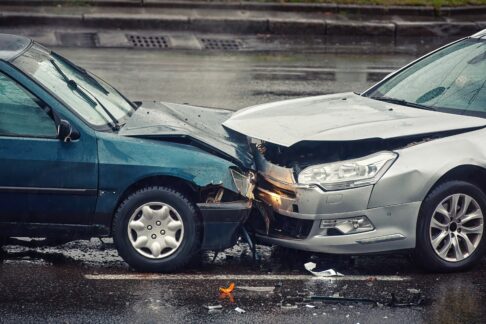Interstate 80 (I-80) is a major highway running through Des Moines, Iowa, and it’s no stranger to traffic accidents. In June 2024, a tragic accident on I-80 near Des Moines resulted in two fatalities (We Are Iowa). Additionally, ongoing road construction has been causing significant traffic disruptions and accidents in the area (We Are Iowa).
This recent chaos on I-80 has highlights the importance of knowing car crash protocol. This article will guide you through the critical stages following a car accident, from immediate actions and handling insurance matters to preparing for potential legal proceedings,.
Dealing with the Immediate Accident
In the immediate aftermath of a an auto accident, it’s crucial to remain calm and take the following steps to ensure safety and proper documentation:
- If possible, move to a secure location (out of the road) and check for injuries.
- Call the police to obtain a police report and, if needed, a tow truck to move your car. Call 911 or emergency medical services if someone was badly injured.
- Collect information to later report to your insurance company:
- Take photos of all cars involved, vehicle damages, road conditions, license plates and any visible injuries.
- Take photos of the other driver’s insurance card and driver’s license. Also ask for their name and contact information.
- Talk to witnesses and ask for their names and contact information.
Handling Insurance Matters
Once the immediate situation is under control, you will need to handle the insurance aspects of the accident. This involves reporting the accident to your insurance company and understanding the claims process.
- Reporting the Accident: Contact your insurance company as soon as possible to report the accident. Provide them with all necessary details and documentation, including all photos and witness statements obtained at the scene.
- Providing Necessary Documentation: Your insurance company will require specific information to process your claim, including a copy of the police report, medical records, and repair estimates.
- Understanding Your Insurance Policy: Familiarize yourself with the terms of your insurance policy, including coverage limits, deductibles, and the claims process.
- Dealing with Claims Adjusters: Be prepared to work with claims adjusters who will assess the damage and determine the compensation you are entitled to. It’s important to be honest and provide accurate information to ensure a fair settlement.
Preparing for Legal Proceedings
In some cases, legal action may be necessary to resolve disputes or seek compensation. Here’s what you need to know about preparing for potential legal proceedings:
- When to Consider Legal Action: If the accident resulted in significant injuries, disputes over fault, or insufficient insurance settlements, it may be necessary to take legal action.
- Finding the Right Lawyer: Seek out a lawyer who specializes in personal injury and car accident cases. A knowledgeable attorney can provide invaluable guidance and representation.
- Gathering and Organizing Evidence: Collect and organize all evidence related to the accident, including medical records, repair estimates, and witness statements. This documentation will be essential for building your case.
- Understanding the Legal Process: Familiarize yourself with the legal process, including filing a lawsuit, the discovery phase (where both parties exchange information), and the trial if the case goes to court. Your lawyer will guide you through each step and help you understand what to expect.
Additional Resources
National Highway Traffic Safety Administration (NHTSA) – The NHTSA is a U.S. government agency dedicated to ensuring road safety. It provides data and research on vehicle safety and offers resources on recalls, crash statistics, and regulatory information to help consumers make informed decisions and stay safe on the road.
Insurance Information Institute – The Insurance Information Institute offers reliable, data-driven insights into the insurance industry. It provides educational materials on various types of insurance, including auto, home, and life insurance.
Iowa Department of Transportation (Iowa DOT) – The Iowa DOT manages the state’s transportation system, ensuring safe and efficient travel across Iowa. It offers information on road conditions, construction projects, and traffic regulations. The department also provides resources on driver licensing, vehicle registration, and public transportation options, supporting the state’s infrastructure and mobility needs.
Hire a Car Accident Lawyer in Des Moines, Iowa
Navigating the aftermath of a car accident can be daunting, but being informed and prepared can make a significant difference. From ensuring immediate safety and handling insurance matters to preparing for potential legal proceedings, each step is crucial in protecting your rights and securing the compensation you deserve.
If you find yourself overwhelmed or facing complex legal issues, don’t hesitate to reach out to McCarthy & Hamrock at (515) 279-9700.
Our experienced team is here to provide the support and expertise you need. We are based in West Des Moines, and practice frequently in the Greater Des Moines and West Des Moines areas of the state including Polk County, Dallas County, Warren County, Madison County and Guthrie County, Iowa.








